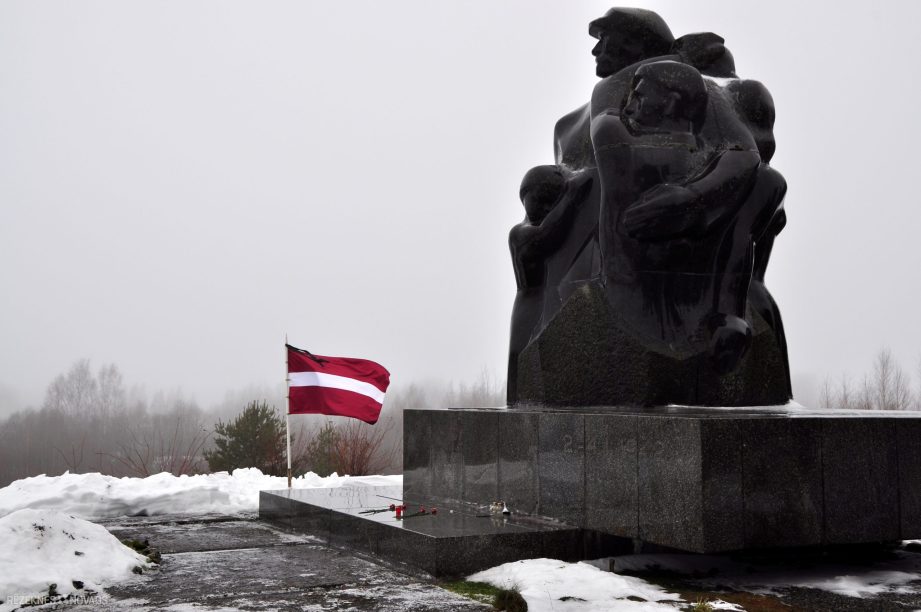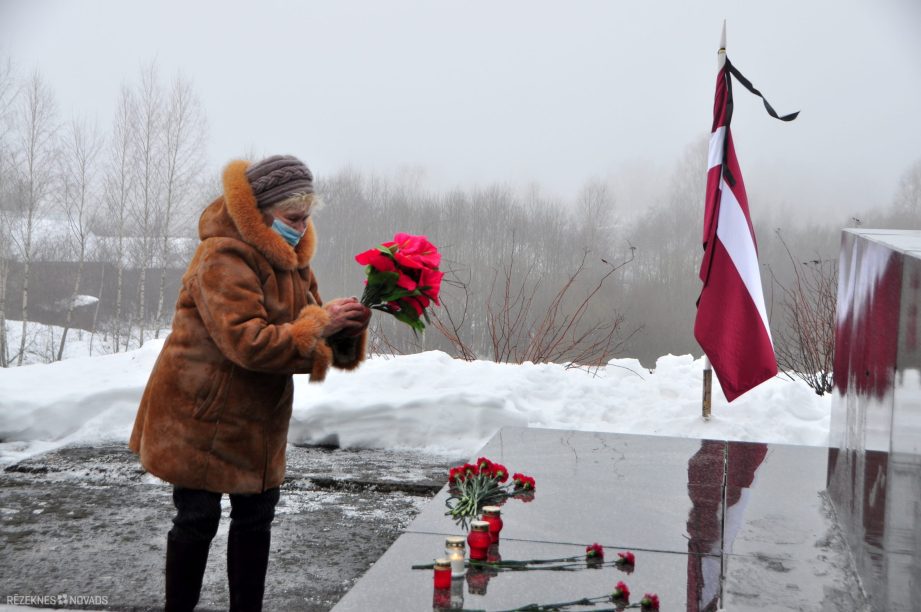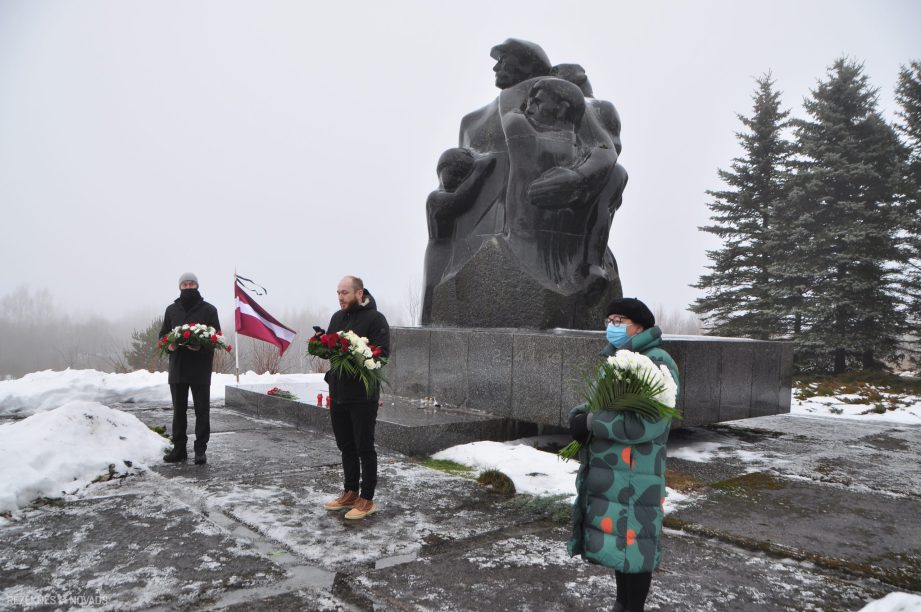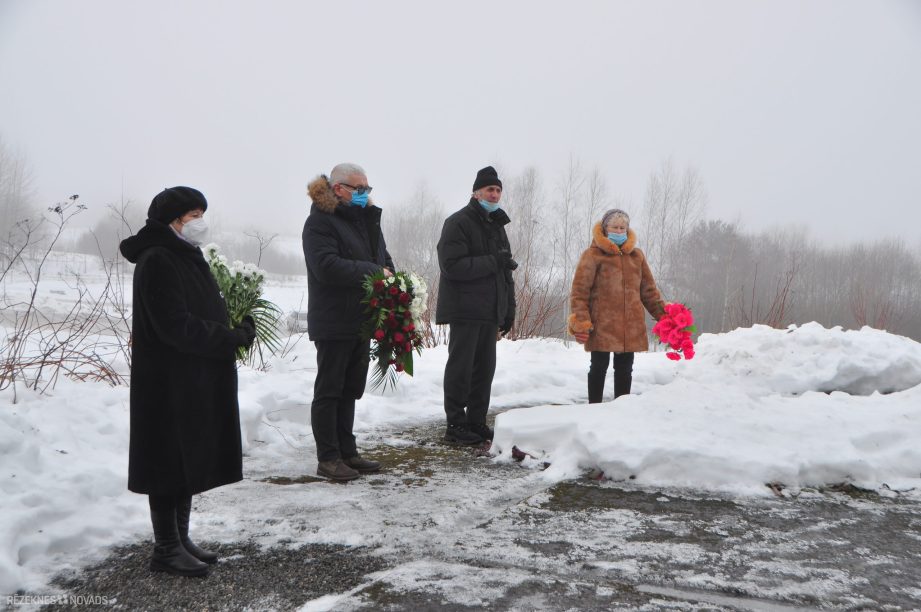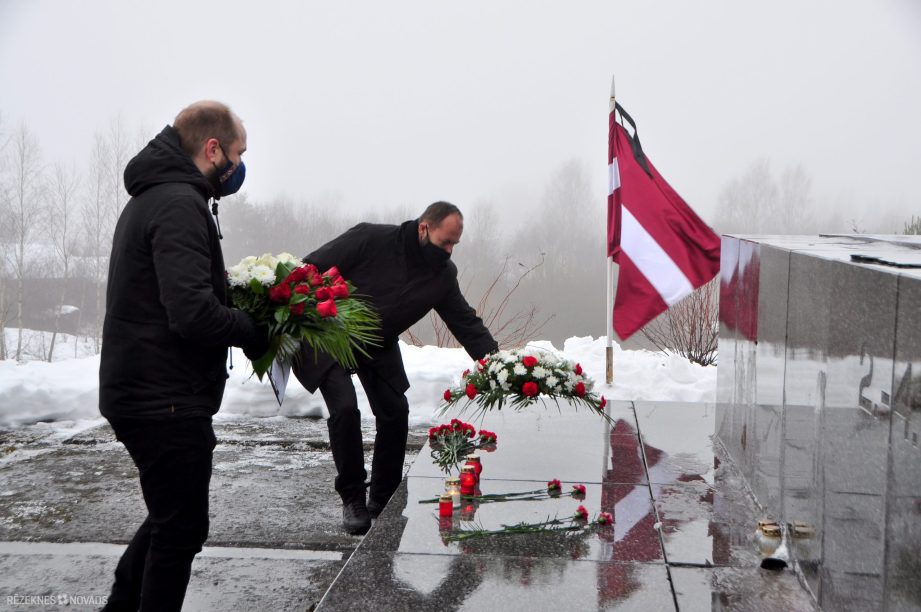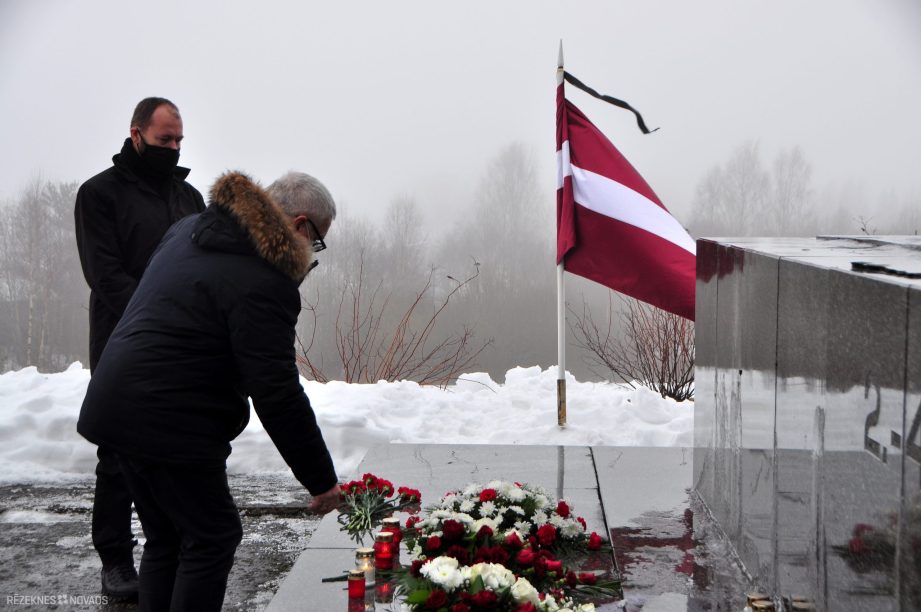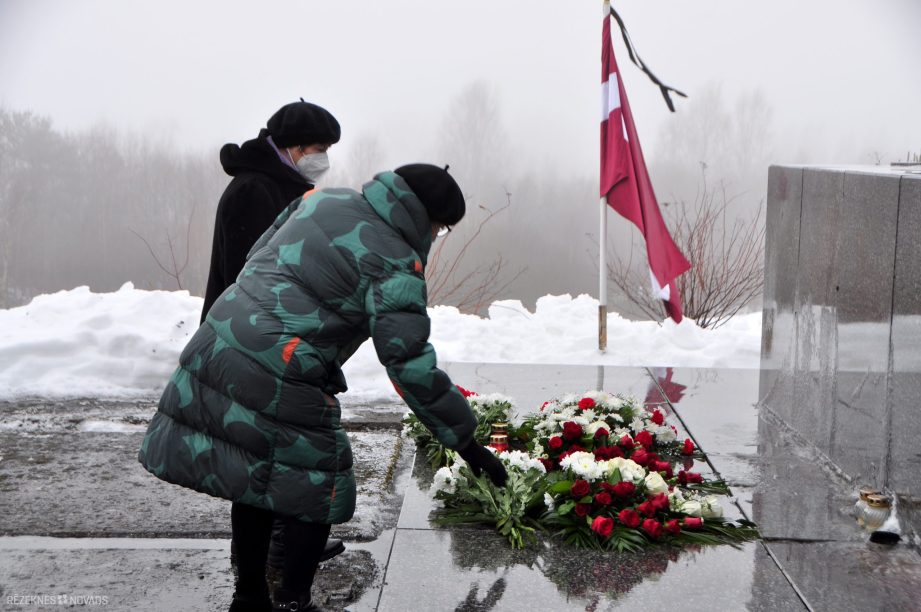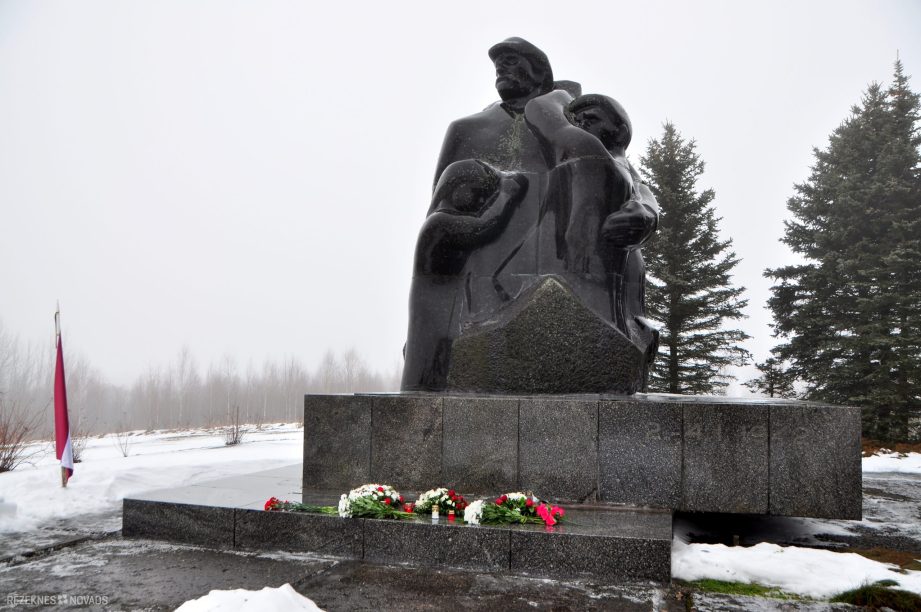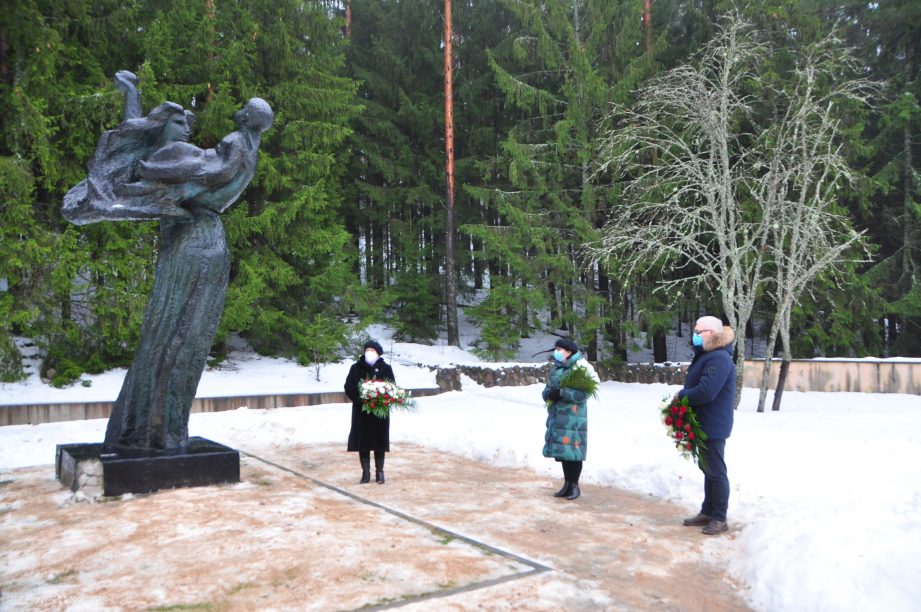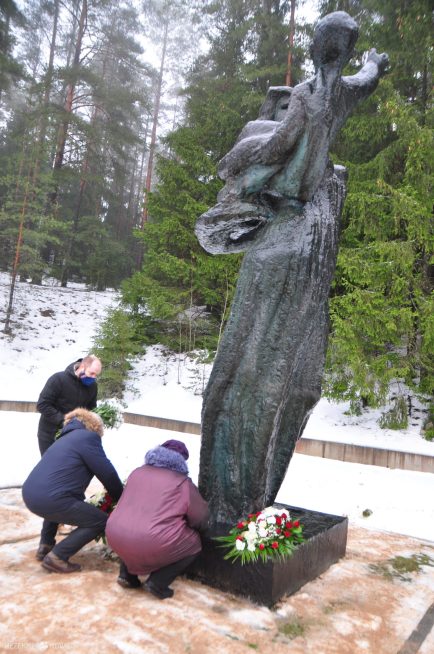Commemoration of THE tragedy victims OF Audriņu
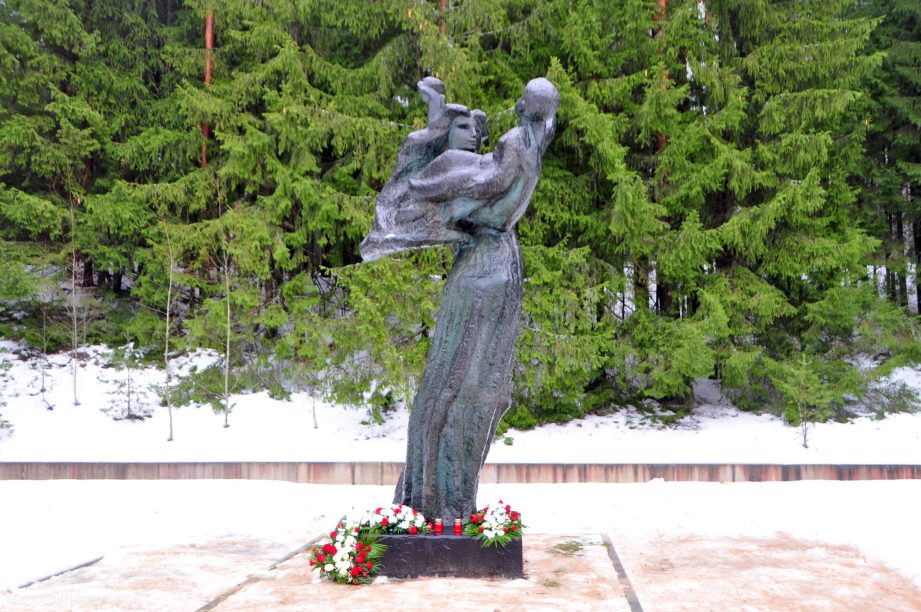
On January 4, a tragedy OF Audriņu is mentioned in the Rēzekne municipality. Today, in BOTH Audriņu villages and audriņiešu killing sites, flowers are lying in Anchupan memorial. In keeping with the restrictions on assembly, the memorial events were not organised this year, but anyone who wished had the opportunity to put flowers individually and burn the candle in the prayer for the dead.
The terrible events that took THE name OF Audriņu in the saddest pages of Latvia's history took place during the Second World War, when the local population was arrested on 2 January 1942, in the winter of winter, in order to be shot, while the village itself was burned to the foundations. According to the sources of history, the reason for such action was the willingness of Nazi to punish THE inhabitants OF Audriņu for the fact that in a house in the Audrowos, the red arcs escaped from the camp of Rezekne's prisoners were hidden. Over 200 Audriņu people were shot in Anchupan forests over the next two days, both old and small children. In this tragedy, he was lucky for those who were not in THE village OF Audriņu on the fatal day.
The representatives of the municipality of Rezekne today, with a moment of silence at the Audiros and Anchupan Memorandum, honoured THE victims OF THE tragedy OF Audriņu. By putting flowers, the Rēzekne council member Guntis Rasims emphasized that THE tragedy OF Audriņu is one of the known war crimes committed by the occupation regime in the territory of Latvia. “In the course of time, the tragedy for propaganda is not embarrassing. Also by interpreting or deliberately defaulting its true reasons and details of events. In reality, however, we see how innocent civilians have died as a result of conspicuous disharmony and the political impressions of existing repressive institutions. Our own people died. In addition, these crimes were also carried out by people who lived among us. Can we be sure today that we have learned and no longer believe in propaganda orders? Are we able to distinguish, today, false false news from reality, pelava from grain? Are we ready to keep humanity and listen to our hearts even in the most difficult times of life? '
Audriņu, the village of the village, Yevgenia Pontaga, says that he is going to spend every year with children and grandchildren. “It is our duty to preserve and give new generations their knowledge of historical events. Our family has been living in the village OF Audriņu in three generations. Grandchildren learn, children work, we - the older generation - can be happy about this life and work on a farm. This day makes it particularly important to think about how happy we are, because our land is a peaceful sky above our heads, our children and grandchildren can dream and plan the future and be sure that the fulfillment of their plans and dreams depends only on their own integrity, determination and diligence. Do not forget the history of history and protect peace in our land - that is our duty. '
Historian Kaspara Strod's article “Audriņu tragedy - 80”
Madara Burtina,
Public relations specialist of the municipality of Rezekne
